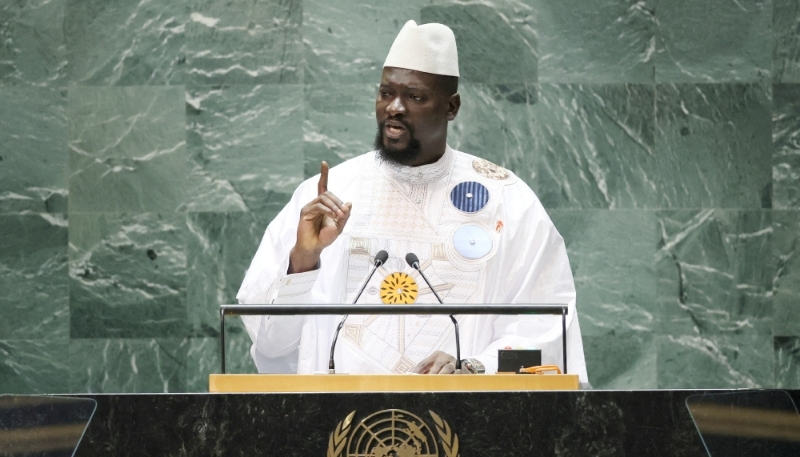
Guinea’s Mamadi Doumbouya considered a potential presidential candidate for 2025 despite transition charter
Your go-to source for in-depth coverage of political developments, economic trends, social affairs, and vibrant cultural stories from across the continent.

Guinea’s Mamadi Doumbouya considered a potential presidential candidate for 2025 despite transition charter
Guinea’s political landscape is abuzz with speculation that Mamadi Doumbouya, the leader of the military junta, may run for president in 2025.
This potential move would challenge the transitional charter that currently bars members of the junta from contesting national elections.
In recent weeks, Doumbouya’s possible candidacy has gained traction, with increasing support from within his government.
General Amara Camara, the presidential spokesperson, recently stated, “President Doumbouya is a citizen like any other.”
He went on to suggest that if the constitution were to be amended, nothing would prevent Doumbouya from participating in the election.
Camara’s remarks have fueled speculation that the transition charter could be altered, possibly through a new constitution, paving the way for Doumbouya to run.
Ousmane Gaoual Diallo, the government spokesperson, echoed this sentiment, implying that Doumbouya’s candidacy would not undermine the democratic process.
“To stand for election is not to usurp the will of the people,” he said, signaling a shift in the government’s stance.
This is a stark contrast to Doumbouya’s initial pledge after the 2021 coup, when he vowed to hand over power to civilians.
His closest aides now appear to be laying the groundwork for a change in direction.
The potential for Doumbouya to extend his hold on power has not gone unnoticed by the opposition.
Kalémodou Yansané, vice-president of the Union of Democratic Forces of Guinea (UFDG), has been vocal in his criticism.
“If Doumbouya runs, there’s no point in holding elections,” Yansané declared, accusing the junta of orchestrating a political charade.
The opposition’s concerns underscore the growing tensions within Guinea’s political sphere as the 2025 elections loom.
The current transition charter, enacted in 2021, prohibits Doumbouya from running for office.
However, a draft of a new constitution is reportedly in the works, and a referendum could be held by the end of the year.
If adopted, this new constitution may clear the path for Doumbouya’s candidacy, despite his previous promises to step aside.
Furthermore, the government is said to be considering an unusual election timeline, with the presidential vote preceding the adoption of the new constitution, as hinted by Foreign Minister Morissanda Kouyaté.
As Guinea approaches its 2025 elections, the potential for a Doumbouya presidency remains a divisive issue, threatening to deepen political unrest in the country.
I am an avid African news observer, and an active member of Daily Mail Africa.
I’m Passionate about staying informed on diverse topics across the continent,
I actively contribute to publishing on political, economic and cultural developments in Africa.